
Mind Moments®, a podcast from NeurologyLive®, brings you an exclusive interview with Anne-Maree Kelly, MD, MClinEd, FACEM. [LISTEN TIME: 23 minutes]

Mind Moments®, a podcast from NeurologyLive®, brings you an exclusive interview with Anne-Maree Kelly, MD, MClinEd, FACEM. [LISTEN TIME: 23 minutes]

Jennifer Frontera, MD, professor of neurology, NYU Langone Grossman School of Medicine, discussed findings from a recently published study investigating neurological complications in hospitalized patients with COVID-19.

Despite not providing additional, clinically relevant benefit for patients with amyotrophic lateral sclerosis as an add-on to standard therapy, the intravenous treatment was feasible and well tolerated.

The research director and staff scientist at Cleveland Clinic’s Epilepsy Center provided insight on her study presented at AES 2021, which showed that MR fingerprinting can differentiate focal cortical dysplasia from healthy tissue. [WATCH TIME: 4 minutes]

AUPN Leading Edge Episode 3 features Clifton Gooch, MD, and Rich Sobieray, who discuss expectations for chairs in the academic health systems. [LISTEN TIME: 37 minutes]

Only 30% of the observed cohort of more than 150 children had their hypertonia type specified as spasticity and/or dystonia by age 5 years, highlighting a need for additional education efforts.
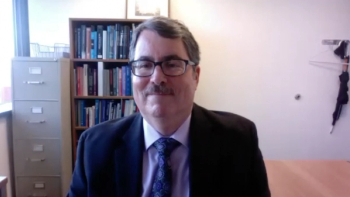
Outlining the findings from a recent study comparing SAGE to the Mini-Mental State Examination, the director of the Division of Cognitive and Memory Disorders at the Ohio State Wexner Medical Center stressed the importance of identifying patients at-risk for dementia early on. [WATCH TIME: 6 minutes]

Catch up on any of the neurology news headlines you may have missed over the course of the last month, compiled all into one place by the NeurologyLive® team.

The results of a phase 4 study demonstrate the efficacy of APOKYN® (apomorphine hydrochloride injection) treatment.

The Anavex Life Sciences treatment was found to be well tolerated in all cohorts of healthy patients with no serious adverse events reported. It is in development for conditions such as frontotemporal dementia.

Reflecting on 2021, Mitzi Joi Williams, MD, the founder and CEO of Joi Wellness Group MS Center discussed the positive repercussions of the COVID-19 pandemic, which allowed for more freedom when sharing data.

The director of the Division of Cognitive and Memory Disorders at the Ohio State Wexner Medical Center discussed benefits of both the pen-and-paper and digital assessments. [WATCH TIME: 7 minutes]
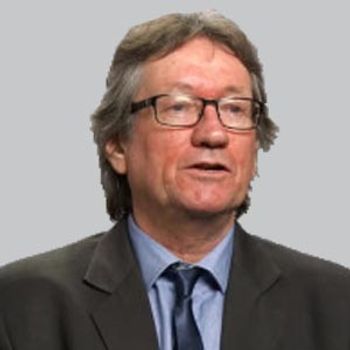
Although both are dopamine reuptake inhibitors, those on MAO-B inhibitors demonstrated greater mean PDQ-39 mobility scores and EuroQol 5-dimension 3-level scores over a median of 4.5 years.
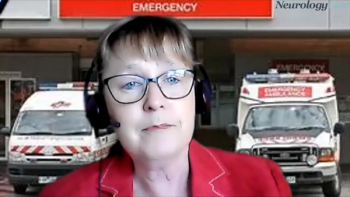
The director of the Joseph Epstein Center for Emergency Medicine Research discussed whether years of experience causes variation in the way migraine is diagnosed and treated in an emergency department setting. [WATCH TIME: 2 minutes]

The research director and staff scientist at Cleveland Clinic’s Epilepsy Center discussed why MR fingerprinting holds significant clinical potential in epilepsy and epilepsy-related disorders.

The Centers for Medicare and Medicaid Services issued a proposed decision memo detailing the coverage criteria for patients with Alzheimer disease to be covered by the federal health insurance platform when administered aducanumab (Aduhelm; Biogen).

Mitzi Joi Williams, MD, founder and CEO of Joi Wellness Group Multiple Sclerosis Center, shared her thoughts on changes to the MS care model over the past year, as well as how the pandemic and telehealth have affected care for underrepresented populations.
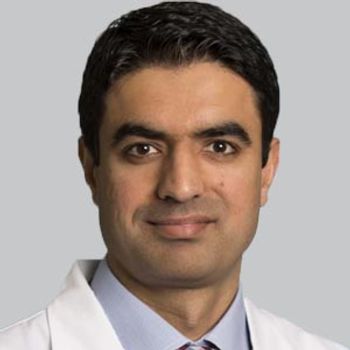
The noninvasive vagus nerve stimulation device showed results consistent with what had been previously observed in the literature, with a particular benefit observed for those who have migraine with aura.

The director of the Division of Cognitive and Memory Disorders at the Ohio State Wexner Medical Center discussed motivations behind creating the pen-and-paper test, as well as its digital companion. [WATCH TIME: 2 minutes]
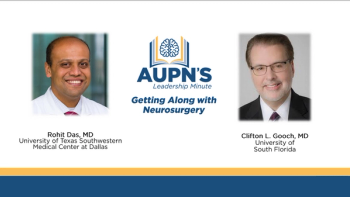
Episode 17 of the AUPN Leadership Minute features Rohit Das, MD, of UT Southwestern Medical Center; and Clifton L. Gooch, MD, of the University of South Florida. [WATCH TIME: 7 minutes]

Mind Moments®, a podcast from NeurologyLive®, brings you an exclusive interview with Thomas Roth, PhD. [LISTEN TIME: 12 minutes]
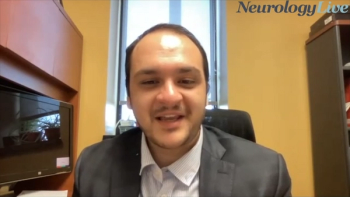
The research assistant professor at the Buffalo Neuroimaging Analysis Center provided context on how different forms of multiple sclerosis impact cognitive decline in patients. [WATCH TIME: 4 minutes]

Darcy Krueger, MD, PhD, director, Tuberous Sclerosis Clinic, Cincinnati Children’s, discussed the idea behind swiftly treating tuberous sclerosis at infant stages using targeted therapeutic approaches.

Investigators partly attribute different trends in ischemic vs hemorrhagic strokes to differences in the development of acute therapeutic strategies over the 20-year study period.

Mortality remained elevated even after 20 years poststroke, highlighting the importance of long-term follow-up in this patient population.

The research director and staff scientist at Cleveland Clinic’s Epilepsy Center provided background on the momentum behind MR fingerprinting and its potential in epilepsy care. [WATCH TIME: 3 minutes]

Daridorexant, which will be marketed as Quviviq, will be available later this year after being scheduled by the US Drug Enforcement Administration.

The founder and CEO of Joi Wellness Group Multiple Sclerosis Center explained her reasoning as to why she hopes telemedicine is here to stay. [WATCH TIME: 4 minutes]

Here's what is coming soon to NeurologyLive®.

The association of feelings of worse performance depended on age, with a higher frequency of amyloid positivity at older ages and a lower frequency at lower ages.